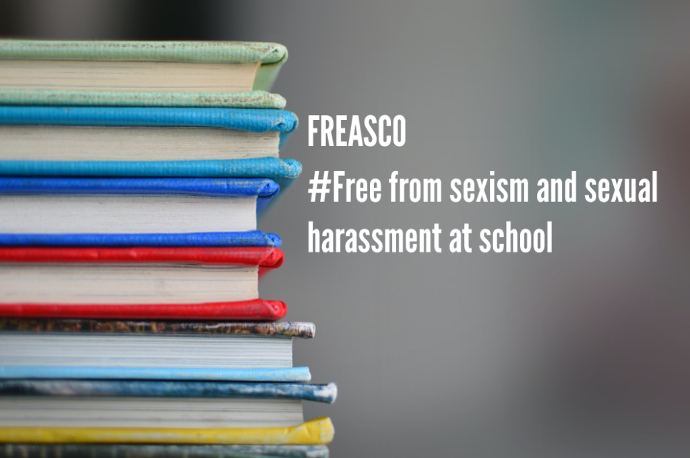
On April 15th, 2020, CSCS along with an extensive EU partnership, has presented the “Free from sexism and sexual harassment at school (FREASCO)” project, under the DG Justice call for proposals to prevent and fight all forms of violence against children, young people, and women.
The project consortium is led by the Department of Education, Languages, Intercultures, Literatures and Psychology of the University of Florence, Italy and comprises two partners from Italy (CSCS and IRIS Ricerche), two from Estonia (University of Tartu and MTU Naiste Tugi), one from France (SC Psytel) and one from Greece (Institute of Entrepreneurship Development).
The project touches very crucial issues in our society, related to gender-based violence in schools (which is indeed a pressing issue all over Europe) and will directly influence the Skillman gender equality policies.
Indeed, Skillman has always attached great importance to the EU policies against gender discrimination and inequalities in the labor market and it supports gender balance in decision-making positions, equal economic independence, and the elimination of gender pay gaps.
To tackle these concerns, FREASCO aims at facilitating the early detection and reporting of sexism, sexual harassment but also gender-based violence, through the use of digital tools for schools and universities. Moreover, these instruments will also be used to create guidance and best practices to support public entities in designing policies against sexism, sexual harassment, and gender-based violence.
This sphere includes acts or threats of sexual, physical or psychological violence occurring inside and around schools, perpetrated because of gender norms and stereotypes. These behaviors have taken many forms, due to the digitalization of the social environment, making our societies and victims more vulnerable. Schools, universities but also public entities are currently failing in providing protection and education against sexism, sexual harassment and homophobic violence.
FREASCO brings together powerful collaborations, benefiting from the support of several relevant public entities, such as the Italian Departments for Equal Opportunities and Family, Tuscany and Sicily Regions, the Estonian Social Insurance Board and the Municipalities of Paris and Trikala (GR).
Selection results will be out in October, but the project consortium can already be proud of its consolidated partnerships and the framework of initiatives foreseen at a later stage.